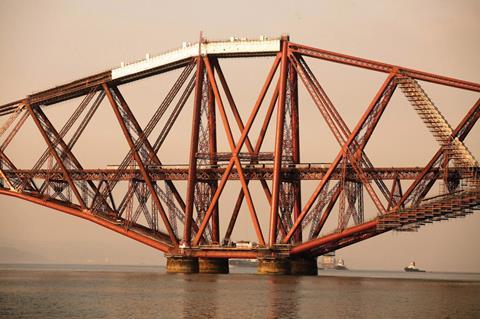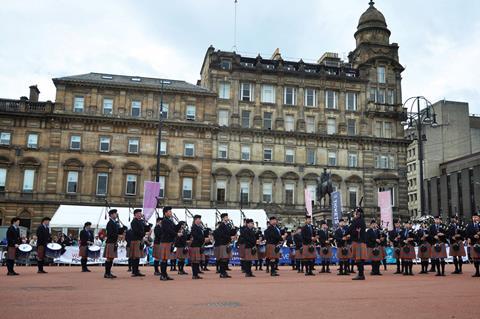Scotland’s Forth Bridge takes Lindy Patterson’s breath away but Glasgow’s principal civic square, the scene of so many protests, is itself the subject of her protestations

I have opted for a Scottish wonder and blunder. My wonder can only be the Forth Rail Bridge. Its true name is the Forth Bridge but is called the Forth Rail Bridge to distinguish it from its neighbour, the Forth Road Bridge.This bridge was the first major bridge in the UK to be constructed from steel.
No matter how often I see it, it takes my breath away. Constructed between 1883 and 1890 for £3.2m - equivalent of £230m today - it is a magnificent structure. Until recently it had needed continual painting spawning the phrase, “it’s like painting the Forth Bridge, you finish at one end and have to start again at the other” - now resolved with the application of paint with a 20-year life. It has been nominated as a UNESCO World Heritage Site.
My blunder is George Square in Glasgow - not the magnificent buildings that surround it, but the square itself. It is a sea of red tarmac broken up only by a number of monuments and the cenotaph. The square is in the very centre of Glasgow. It is one of the areas you first see when arriving at one of Glasgow’s major train stations.
It is overlooked by the magnificently ornate Glasgow City Chambers, designed by William Young (built in 1880) and the newly renovated General Post Office building originally designed by Robert Matheson. It has not been a dignified setting for the buildings that surround it or as the main civic square for Scotland’s largest city for many years.
The square has a political history. After being a private garden for the surrounding houses of wealthy merchants in the late 18th century and after many disturbances in the square it was opened to the public. It has been the scene of many political gatherings and protests since then.
In 1998 red tarmac was laid and all landscaping removed giving it the nickname “red square”. This has almost universally been regarded as a mistake. It is now the subject of a design competition to redevelop it ahead of the Commonwealth Games in 2014. It can’t come soon enough.
Lindy Patterson QC is a partner in Dundas & Wilson
WONDER

The Forth Bridge was built between 1883 and 1890. It took 4,300 workers to complete it; used 54,000 tonnes of steel and 6.5 million rivets. No less than 63 men lost their lives during the construction; many more were crippled and one of the accident books recorded 26,000 accidents.
BLUNDER

Glasgow’s George Square, named after King George III, was laid out in 1781. It was the location of the 1919 Black Friday Rally where 90,000 protestors filled the square to protest against working conditions - in particular against the 56-hour working week in the factories. This year Glasgow City Council voted to spend £15m on its renovation.




























No comments yet